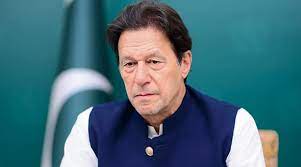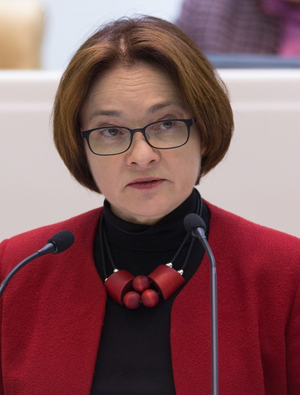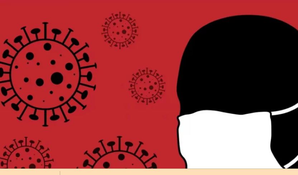World
Imran Khan again praises Indian Government for fuel price cut

To reiterate, Pakistan’s deposed Prime Minister Imran Khan boasted about the “discounted oil” from Russia that his government used to lower fuel prices, saying that India’s “independent foreign policy” did the same thing.
As a result of skyrocketing fuel costs and accompanying spikes in inflation, the Indian government reduced excise duties on both gasoline and diesel by a record Rs 8 per litre on Saturday.
It also decided to provide “Ujwala Yojana” beneficiaries with a subsidy of Rs 200 per cylinder for a total of 12 cylinders in a year.
According to the South Asia Index, the Indian government has reduced the price of gasoline by 9.5 rupees per litre after purchasing discounted oil from Russia. Seven rupees per liter were taken off the cost of diesel.
Even though India was part of the Quad, it was still under pressure from the U.S. and bought discounted Russian oil in order to help the people.”
“This is what our government was trying to accomplish with the help of a separate foreign policy,” says the author.
India, the world’s third-largest oil consumer and importer, has recently purchased a few Russian cargoes at steep discounts as part of its efforts to diversify its imports.
Despite the surprise of opposition parties, this is not the first time Pakistani Prime Minister Imran Khan has lavished praise on India.
He later tweeted: “Pakistan’s interest was supreme, but unfortunately the local mir Jafar and mir Sadiqs bowed to external pressure, causing a regime change and are now running around like a headless chicken with the economy in a tailspin,”
Khan frequently refers to his political adversaries as Mir Jafars and Mir Sadiqs, two historical figures who betrayed their masters and aided the British.
World
Indian-origin barrister Varun Ghosh appointed to Australian Senate

Melbourne, Feb 3 (IANS) Indian-origin barrister Varun Ghosh will take his position in the Australian Senate next week with the Labour Party officially confirming him as their pick to represent Western Australia (WA).
A joint sitting of WA Parliament on Thursday selected the 38-year-old Ghosh, a barrister at Francis Burt Chambers, to replace present senator Patrick Dodson.
“The Legislative Assembly and the Legislative Council have chosen Senator Varun Ghosh to represent Western Australia in the Senate of the Federal Parliament,” the Legislative Assembly of Western Australia announced on X.
Ghosh joined the Labor party in Perth at the age of 17 after his parents moved from India in the 1980s and began working as neurologists, news website WAToday reported.
He said his preselection was an honour he won’t take for granted. “I have had the privilege of a good education and believe strongly that high-quality education and training should be available to everyone,” he said in a statement.
“Varun has spent the last few years working as a barrister with both WA business & on the international stage with the World Bank. I look forward to working with him as part of our
@walabor Senate team in CBR (Canberra),” Minister for Veterans’ Affairs, Matt Keogh, wrote on X platform.
At the 2019 federal election, Ghosh was placed in fifth position on the Australian Labour Party’s Senate ticket in Western Australia but was not elected.
He received degrees in Arts and Law from the University of Western Australia and was a Commonwealth Scholar in Law at the University of Cambridge.
He previously worked as a finance attorney in New York and as a consultant for the World Bank in Washington, DC.
Ghosh returned to Australia in 2015 as a senior associate with King & Wood Mallesons, representing banks, resource companies, and construction companies in dispute resolution.
World
Trump’s federal trial on election interference postponed from March 4

Washington, Feb 3 (IANS) Former US President Donald Trump’s federal trial set for March 4 on charges of election interference has been postponed — confirmed after it was dropped from the Washinton DC District Court’s calendar — as an appeals court has to dispose of his claim of immunity from the charges.
Trump’s March 4 trial date on federal charges that he conspired to overturn the 2020 election has disappeared from the district court’s calendar, confirming that his fight over whether he is immune to the charges will delay the case, media reports said.
The delay could have a domino effect on other cases pending against the former President.
Trump, as it stands today, will first face criminal trial in New York, where he is charged with falsifying business records on a scheme to pay hush money to an adult film star and a former Playboy model. That trial’s tentatively set for March 25.
Manhattan District Attorney Alvin Bragg has said that the judge was waiting to see what was happening in other jurisdictions. He said he would have a better idea of the schedule after the next hearing in the case on February 15.
In the federal case in Washington, US District Judge Tanya Chutkan set the tentative trial date in August, weeks after the former President was indicted on three conspiracy charges and one obstruction charge. But the case has dropped off the court’s calendar and hasn’t been rescheduled before the November election. Chutkan hasn’t explained the change in the court docket, USA TODAY reported.
The trial dropping off the schedule appears to result from the legal wrangle over whether Trump is immune to charges as he has invoked executive privilege not to testify in a court on grounds of having been the President of the US.
Trump, the front-runner in Republican presidential nominations, has sought to delay four criminal cases until after the election. He has also argued he is immune to the federal election charges because he was President when the alleged criminality took place.
The Washington DC Circuit Court of Appeals is considering his argument and its decision has no deadline, so it does not appear to be time-bound but could come at any time. Whatever the decision, the case is likely to go to the US Supreme Court, which could take weeks or months longer to decide.
Chutkan had sought to stick to her schedule. But other issues must also be debated before trial, such as what evidence might be excluded and what questions will be asked of potential jurors. She had said that postponing those decisions “will not serve the interests of justice”.
The delay might provide an opening for a New York trial on 34 counts of falsifying business records to cover up hush money payments before the 2016 election. Trump has pleaded not guilty.
New York Justice Juan Merchan tentatively set the trial to start on March 25. A hearing is scheduled for February 15.
When the New York trial is held, Trump’s federal trial in Florida on charges he hoarded national security documents after leaving the White House could also be postponed. The documents trial is tentatively scheduled for May 20. But prosecutors and defence lawyers are in a legal tussle over how to handle classified documents in that case.
A Georgia trial on charges that Trump and others conspired to interfere with the 2020 election hasn’t been scheduled yet. Fulton County District Attorney Fani Willis has asked for an August 5 trial date but that would mean the expected five-month trial could overlap with the election. Fulton County Superior Judge Scott McAfee hasn’t set a date yet.
World
3 Indo-Canadians to be extradited to US for drug trafficking

Toronto, Feb 1 (IANS) Three Indian-origin men have been arrested in Canada and will be extradited for trial in the US for their alleged links with a network trafficking drugs between Mexico and the North American nations.
A joint operation between the Federal Bureau of Investigation (FBI) and the Royal Canadian Mounted Police (RCMP), dubbed “Operation Dead Hand”, saw 19 people charged in two US federal indictments for their alleged roles in the organized crime ring.
Ayush Sharma, 25, and Guramrit Sandhu, 60, both from Brampton, and Subham Kumar, 29, from Calgary, were arrested under an international arrest warrant, the RCMP said in a release on Tuesday.
“Drug trafficking is a global problem being driven by sophisticated, organised crime groups who put profits over people’s lives. Motivated by greed, these criminals destroy lives, devastate families, and wreak havoc in our community,” said US Attorney Martin Estrada for the Central District of California.
Investigators developed information indicating the organised crime group used Canadian “handlers’ and “dispatchers” who travelled from Canada to Los Angeles for short amounts of time, a Department of Justice release noted.
The handlers coordinated the pick-up and delivery of large shipments of cocaine and methamphetamine, which were loaded onto long-haul semi-trucks destined for Canada. Wholesale quantities of fentanyl were seized as a result of the investigation.
The transportation was coordinated by a network of drivers working with dozens of trucking companies who made numerous border crossings from the US to Canada via the Detroit Windsor Tunnel, the Buffalo Peace Bridge, and the Blue Water Bridge.
Sidhu, also known as King, is alleged to have orchestrated the trafficking and exportation of large-scale quantities of controlled substances to Canada working with several co-defendants described as suppliers.
According to the indictment, Sidhu occupied the position of an organiser, supervisor, and manager, and in this role obtained substantial income and resources.
He has been charged with one count of engaging in a continuing criminal enterprise, and if convicted, he faces a mandatory minimum penalty of 20 years in prison.
Sharma and Kumar were identified in the indictment as semi-truck drivers involved in exporting drugs to Canada.
Both the indictments allege illicit drug trafficking activity cumulatively involving approximately 845 kgs of methamphetamine, 951 kgs of cocaine, 20 kgs of fentanyl, and 4 kgs of heroin.
Over $900,000 in cash was seized during the investigation. The estimated wholesale value of the narcotics seized was between $16-28 million.
Arrest and search warrants were executed on Tuesday morning by a coalition of international law enforcement partners in various cities, including Los Angeles; Sacramento, California; Miami; Odessa, Texas; Montreal; Toronto; and Calgary, Canada.
World
Will discuss credit ratings, anti-money laundering platform in BRICS: Russian central bank governor

Moscow, Jan 30 (IANS) Russia central bank governor Elvira Nabiullina on Tuesday said that the country will propose key initiatives to enhance cooperation among the BRICS countries in 2024 when it assumes the chairmanship of the bloc.
Nabiullina said the country would like to promote the topic of mutual recognition of ratings which is very important for mutual trade and investment, Xinhua news agency reported.
The country will also be putting forward an initiative to check money laundering of illicit funds as it has an experience in creating an anti-money laundering platform called “Know Your Customer,” which it is willing to share.
Russia, which took over the rotating chairmanship of BRICS for 2024 on January 1, also plans to build a settlement-depository infrastructure and create a common platform for training and exchange of experience for the BRICS countries.
The idea of creating supranational rating agencies that has been discussed both within BRICS and within the Eurasian Economic Union, is promising but involves “a lot of complex issues,” including who should be the founder, how to ensure the financing, and how to guarantee the independence and professionalism of the agency, Nabiullina said.
Nabiullina said that the mutual recognition of ratings will be faster and more practical.
World
Japan may face 10th wave of Covid-19 infection: Experts

Tokyo, Jan 29 (IANS) As reported infection cases have risen for continuous nine weeks in Japan, infectious disease expert believes that the country is probably in the midst of a 10th wave of Covid-19 infections.
The new JN.1 variant, which is extremely contagious, is driving the spread, reports the Japan Times.
The Japanese Health Ministry noted that in the week ending January 21, there were 12.23 infected persons reported per organisation, which is 1.4 times more than the previous week. The growth continued from late November last year.
Visiting professor of infectious diseases at Keio University — Norio Sugaya has warned the public to take precautions.
As per the report, rising JN.1 infections, which resulted from a mutation from the BA.2.86 omicron variation, are the cause of the coronavirus comeback.
“JN.1 seems to be better able to evade immunity. The current situation can be described as the 10th wave of infections, and the number of infected people is feared to rise further due to the spread of JN.1,” Sugaya was quoted as saying.
Moreover, the report said that the new variant is rapidly replacing others in Japan.
The majority, or almost 20 per cent, of the 194 Covid-19 samples that private testing companies looked at between January 1 and January 7 were JN.1, according to the National Institute of Infectious Diseases.
Early next month, the share is expected to hit 43 per cent, the report mentioned.
As per the World Health Organisation (WHO), there is no evidence that JN.1 causes more severe symptoms than other variants. However, JN.1 probably spreads faster because it evades the human immune system more readily.
-
Video2 years ago
PM Modi Attacks Congress in Karnataka with “Kerala Story”
-
Politics2 years ago
Siddaramaiah & DK Shivakumar sworn in as Chief Minister & Deputy CM respectively
-
Cricket2 years ago
CSK players rejoice 5th IPL title with their families (Pics)
-
Entertainment2 years ago
Karan Deol weds his longtime Girlfriend Drisha Acharya (Pics)
-
Entertainment2 years ago
Urvashi Rautela dazzles on Cannes 2023 red carpet (Pics)
-
Sports7 years ago
History Of Official FIFA WORLD CUP Match balls
-
Entertainment2 years ago
Sunny Leone gets ready for Kennedy premiere in Cannes (Pics)
-
India2 years ago
Ashwini Vaishnaw: Railway Board recommends CBI probe in the Odisha railway disaster


























